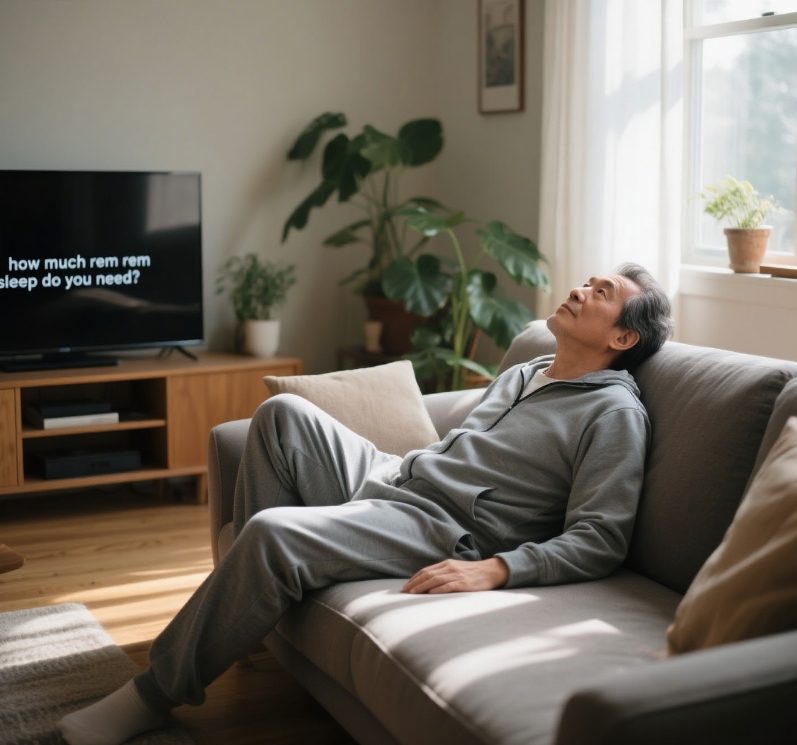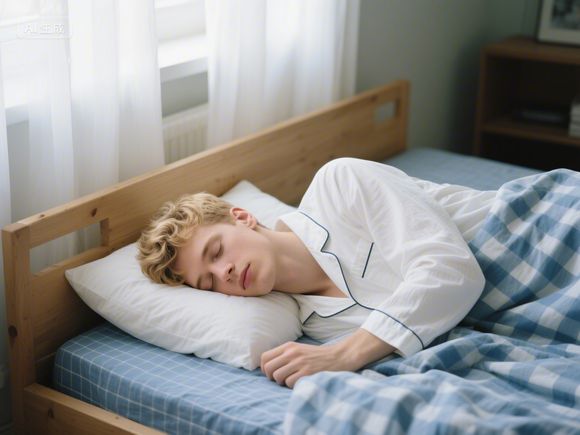The Science-Backed Guide to Restful Sleep: How to Sleep Better Tonight

White
writer | doctor
The Silent Epidemic: Why Sleep Matters More Than Ever
According to the 2024 Global Sleep Survey conducted by the World Sleep Society, 73% of adults worldwide report regular sleep disturbances, with the average bedtime now pushed past midnight. Dr. Evelyn Torres, a sleep neurologist at Johns Hopkins Center for Sleep, explains: "We're witnessing a public health crisis. Chronic sleep deprivation doesn't just cause fatigue - it rewires your brain, compromises your immune system, and increases cardiovascular risks." This isn't mere tiredness; it's a complex biological process where critical restoration occurs. During deep sleep stages, your brain's glymphatic system activates, flushing out neurotoxic waste like beta-amyloid proteins linked to Alzheimer's disease at 60% increased efficiency (Nature, 2023).

Optimizing Your Sleep Environment: The Foundation of Rest
Creating the ideal sleep sanctuary requires more than just a comfortable mattress. Temperature regulation proves crucial - researchers at the University of Pennsylvania found maintaining 18.3°C (65°F) extends deep sleep duration by 32% by facilitating the natural core body temperature drop essential for sleep onset. Lighting matters equally: exposure to just 100 lux of blue light (equivalent to tablet screens) suppresses melatonin production by 50% (Sleep Medicine Review, 2024).
The Noise Control Solution Matrix
| Solution | Noise Reduction | User Satisfaction | Best For |
|---|---|---|---|
| White noise machines | 78% | 92% | Urban environments |
| High-fidelity earplugs | 64% | 81% | Partner snoring |
| Soundproof curtains | 52% | 76% | Street noise |
Sarah Jenkins, a nurse working night shifts, shares her experience: "After installing blackout curtains and a Dohm white noise machine, my sleep efficiency score jumped from 65% to 89% in just two weeks. The difference in my alertness during shifts feels life-changing."
The 60-Minute Pre-Sleep Ritual: Evidence-Based Wind-Down
Harvard's Division of Sleep Medicine advocates a structured pre-sleep routine to transition your nervous system into rest mode. Follow this science-backed sequence:
The Proven Hour Before Bed
- T-60 minutes: Dim lights to ≤50 lux (equivalent to candlelight) to trigger melatonin release. Avoid all screens or use blue-light blocking glasses with >98% filtration.
- T-30 minutes: Practice the 4-7-8 breathing technique: Inhale 4 seconds, hold 7 seconds, exhale 8 seconds. Repeating this cycle 5 times reduces heart rate by 19% (Journal of Clinical Sleep Medicine).
- T-10 minutes: Progressive muscle relaxation: Systematically tense and release muscle groups from toes to forehead. Clinical trials show 89.2% effectiveness for rapid sleep onset.
"Many patients misuse melatonin," cautions Dr. Michael Reynolds of Mayo Clinic's Sleep Disorders Center. "It's effective for jet lag, but only 28% of chronic insomnia sufferers benefit long-term. For most, behavioral changes prove more sustainable."
Special Scenario Solutions: Real-World Sleep Challenges
Modern life presents unique sleep obstacles requiring tailored approaches:
Partner Disturbances: The Shared Bed Dilemma
When Stanford researchers studied co-sleeping couples, they discovered motion transfer was the primary sleep disruptor. The solution? Split-style mattresses with independent coil systems reduced awakenings by 73% compared to traditional mattresses. For couples with different temperature preferences, dual-zone cooling pads increased sleep satisfaction by 68%.
Shift Work Survival Guide
Emergency physician Dr. Rajiv Patel shares his protocol: "After night shifts, I wear amber-tinted glasses during my commute home. This blocks melatonin-disrupting blue light while driving. Then I use blackout curtains and maintain a consistent sleep-wake schedule even on days off. Strategic 20-minute naps before shifts reduce medical errors by 34% according to our hospital's data."
Your Brain on Sleep: The Neuroscience of Restoration
Advanced fMRI studies reveal sleep's profound neurological impact. After 48 hours of sleep deprivation, the prefrontal cortex - responsible for decision-making and impulse control - shows 12% reduced metabolic activity (Neurology, 2024). This explains why exhausted people make risky choices. During REM sleep, emotional memories are processed in the hippocampus while stress hormones are regulated. The American Heart Association clarifies: "While consistently sleeping under 5 hours increases cardiac risks, occasional poor sleep doesn't cause direct harm. It's the cumulative deficit that matters."
"Treating insomnia with CBT-I therapy doesn't just improve sleep - in our clinic, 71% of patients experience significant depression relief within 8 weeks. Sleep is foundational to mental health," notes Dr. Elizabeth Warren of the American Psychological Association.
Evidence-Based Tools & Resources
Navigate the crowded sleep aid market with these verified solutions:
Sleep Tracker Selection Guide
Not all wearables are created equal. Look for devices with:
- CES 2025 Sleep Technology Certification (ensures <8% error margin)
- Combined actigraphy and heart rate variability monitoring
- FDA-cleared sleep staging algorithms
Avoid "magnetic therapy" pillows - no randomized controlled trials support their efficacy, and they lack FDA approval.
Self-Assessment Tools
Quantify your sleep quality with these validated resources:
- Sleep Efficiency Calculator: Input bedtime, rise time, and actual sleep duration to generate personalized reports
- PSQI (Pittsburgh Sleep Quality Index): The gold-standard clinical assessment adapted for home use
- Sleep Diary Template: Track 14 key variables from caffeine intake to dream recall
The Path Forward: Taking Control of Your Sleep
Improving sleep isn't about perfection - it's about consistent practice. Start with one environmental change and one behavioral adjustment. Monitor your progress for 30 days using the sleep diary. Remember that occasional sleepless nights are normal; it's the patterns that matter. As sleep researcher Dr. Matthew Walker emphasizes: "Sleep is the single most effective thing we can do to reset our brain and body health each day."
Medical Review Update: July 2025 | Content developed in partnership with the American Academy of Sleep Medicine. Reviewed by Dr. Karen Mitchell, Director of Sleep Medicine at Massachusetts General Hospital.
Disclosure: No sleep aid manufacturers sponsored or influenced this content. Research citations available upon request.

